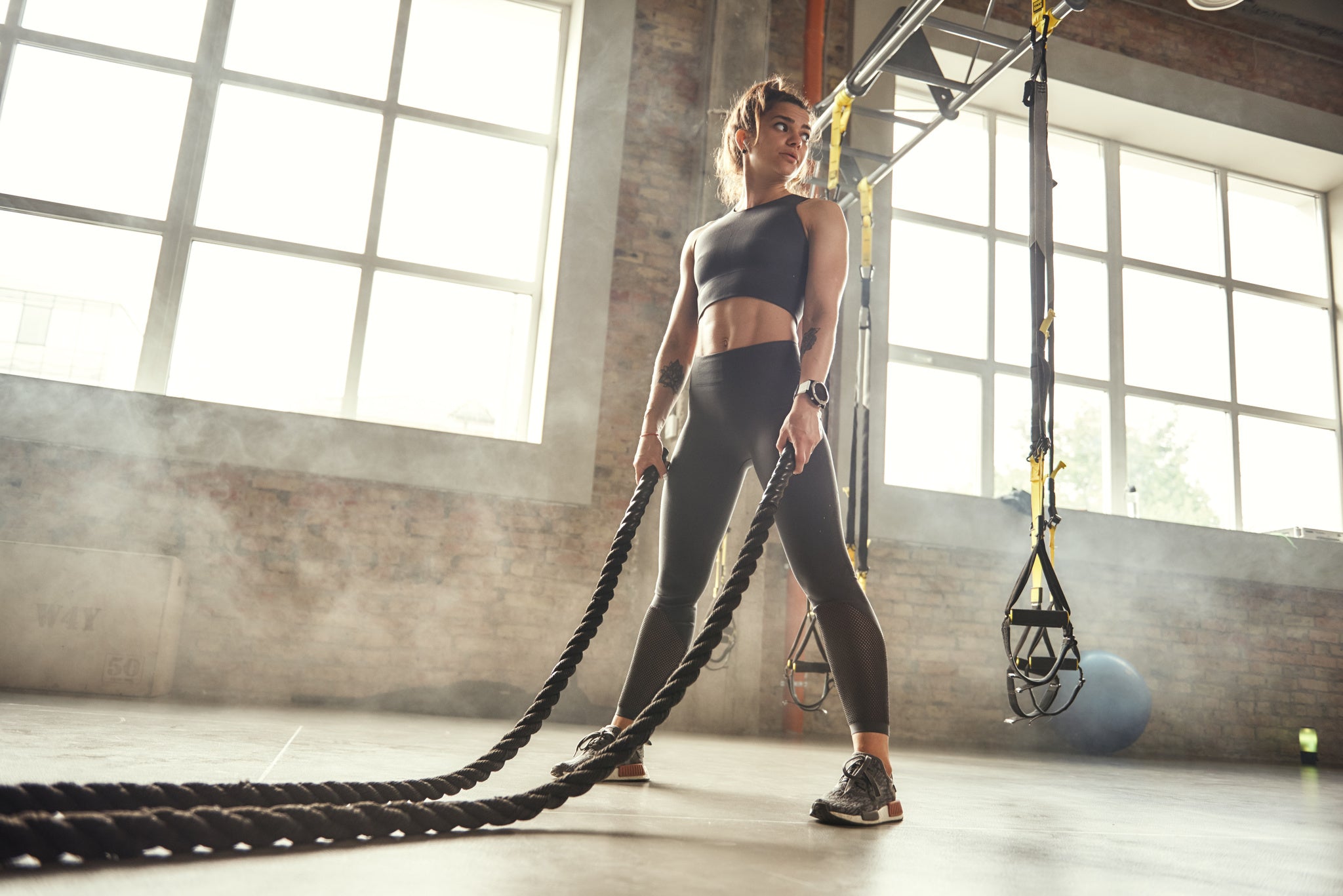Working out can cause excessive sweating, as well as a buildup of oil, dirt, and bacteria on your skin — all of which can lead to acne. The trapped sebum forms annoying bumps, which can even start to itch. Sweating at the gym definitely plays a part in acne breakouts, though ironically exercise can also help reduce these outbreaks—as long as you practice proper skincare routine and hygiene.
Sweat can cause acne if it remains on the skin too long. When your heart rate goes up, sweating helps to cool you down. Sweat glands open pores, allowing them to “breathe,” and flush out oil. As you cool off, sweat, makeup, and bacteria can get trapped in your skin as pores close. The result? Clogged pores and inflammatory acne. In addition, sweat changes the pH balance of skin, creating the perfect environment for acne-causing bacteria to build up and cause zits.
1. Wear Breathable Fabrics
If you know you’re going to be sweating, the first step is wearing light and breathable fabrics like cotton and linen — they’ll not only help your skin, but will also keep you cool. You can also opt for sweat-wicking activewear for your workouts. The idea is to make sure your body stays as dry as possible, even if you’re sweaty.
2. Keep Your Pores Clear
In the summer months, avoid comedogenic — or pore-clogging — ingredients in your Skin care routine. These are heavier butters and oils (like coconut oil and shea butter), especially if your skin is on the oily or acne-prone side. Keeping your regimen lightweight means you’ll have less of a chance of experiencing sweat-induced breakouts.
3. Apply oil-free sunscreen before you head outside.
If you’re going to exercise outdoors during the day, you can prevent breakouts by protecting your skin from the sun. Yes, the sun can cause breakouts because it dries your skin. When this happens, your body produces more oil, which can clog pores and cause acne.
To get the protection you need, you’ll want to apply a sunscreen that offers:
• SPF 30 or higher
• Broad spectrum (protects you from UVA and UVB rays)
• Water resistance
• Oil-free formulation (Label may say “non-comedogenic” or “won’t clog pores”)
4. It’s equally important to keep your pores clear via the face wash and body wash you’re using. Using products containing salicylic acid,glycolic acid or alpha-hydroxy acids reduce the amount of natural oils you produce. Try cleansing your skin shortly after sweating to reduce the amount of time that dampness has to create blemishes.


